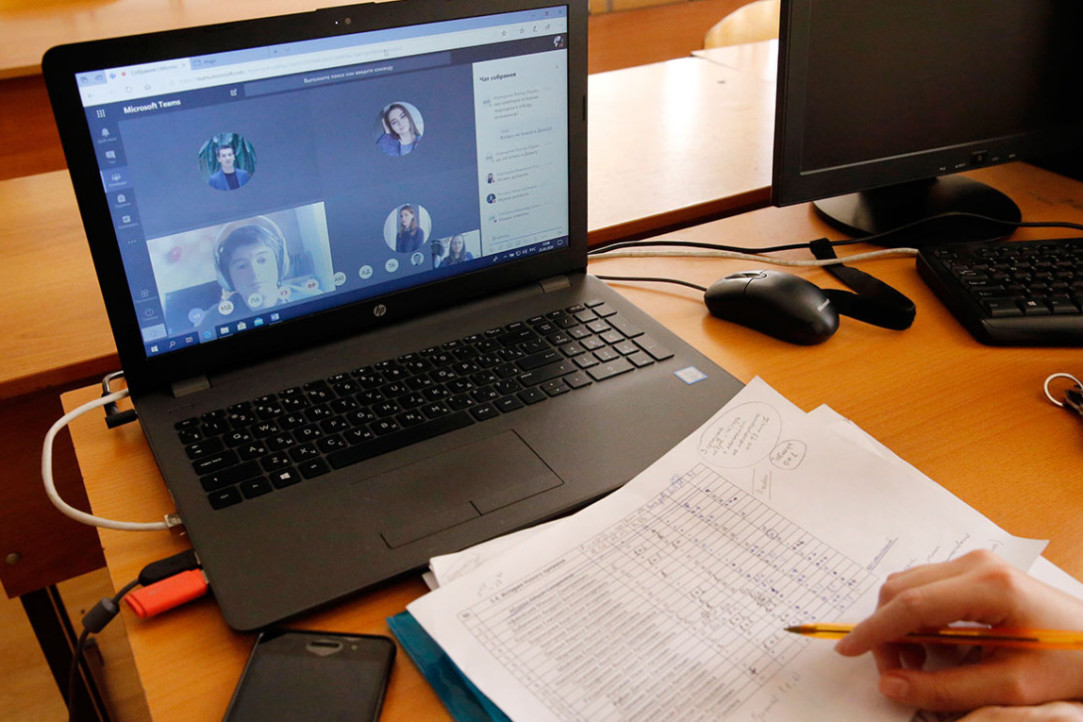
From Games to Models and Cases: New Tools for Online Learning
According to HSE Director for eLearning Evgenia Kulik, by introducing modern gaming software, virtual simulators, scenario tests, and VR components into online courses, ‘HSE is actively developing new forms of teacher-student interaction in online courses to increase student engagement, motivation, and the quality of education.’

Registration for HSE's Optional Courses of the Second Semester Open for Everyone
On December 17, registration for open optional courses will start on the HSE online education platform. All courses will be online and open to everyone, regardless of age and level of education.
.jpg)
Online Games for the Virtual Classroom: Instructors Learn New Tools in Workshops Hosted by Teach for HSE
In early December, Teach for HSE, a programme aimed at helping HSE instructors expand their teaching methods and skills, held a series of master classes on how to integrate online games into one’s teaching. The master class was led by winners of the spring competition held by the Fund for Educational Innovation, and it was open to instructors of all HSE campuses.

‘In Order Not to Lose Out in the Global Market, We Need to Cultivate Our National Competitors’
Among the wide range of issues considered at the VII global conference on new educational technologies, EdCrunch On Demand, two topics were highlighted: the development of the education system during the pandemic and the further improvement of the competitiveness of Russian higher education. Conference participants concluded that the future of education lies in a combination of online and offline studies, that it is necessary to invest in different types of universities, and that universities will have to compete with start-ups and large corporations.

Dmitry Abbakumov: Data from Online Educational Platforms Can Be Useful Both for Students and Teachers
On the one hand, the transition to online learning has brought new opportunities. On the other, it has raised several critical questions that are essential for evidence-based education. The pandemic has only made these issues all the more acute. The problems of online education were discussed at the recent eSTARS conference, which was organized by HSE University together with Coursera. Dmitry Abbakumov, Head of the HSE Centre for Computational Educational Sciences, shared his perspective on the matter.

New Opportunities for International Applicants: Get to Know HSE University Online
The universal transition to online learning has opened new opportunities for international applicants to get to know HSE University. Below, Deputy Vice Rector Marina Kozak outlines the programmes and opportunities available at HSE that help applicants choose an educational track and assess their capabilities.
.jpg)
Key Takeaways of eSTARS: Higher Digital Education
Students need digital skills, both in life and in their future work. But many universities are not yet ready to provide students with them, despite the current circumstances in which universities have had to transition to online learning due to the COVID-19 epidemic. The development of online formats has been uneven: there are bright leaders and the rest modestly ‘stand aside’. They lack resources, confidence in digital education, and a regulatory framework. At the eSTARS International Conference organised by HSE University in partnership with Coursera, experts discussed the challenges of digitalisation in higher education.

Home Study or Home Suffering? Lessons of the Pandemic for Primary and Secondary Education
Online learning for schoolchildren — a temporary solution authorities have implemented due to the COVID-19 epidemic — has generated a lot of heated debate. Families worry about the quality and outcomes of online learning, and teachers worry about the excessive workload. School heads have their own headache about how to organise the remote learning. A year has passed since the start of the pandemic, and students have been attending their classes online since March — it is already possible to take stock and look at the situation in a comprehensive and impartial manner, which is what a team of HSE researchers has done. Here are the main results of their study and their proposed solutions to the most pressing problems.
.jpg)
HSE Launches VR Live Streaming System for Students
HSE University together with the mobile network operator company MTS have launched a 360° live streaming system that supports VR format for remotely taught courses. HSE students can now attend lectures online both in regular format and, for the first time in Russia, in augmented reality format. Six lecture halls on HSE’s Moscow campus are now equipped with 360° panoramic video cameras and auto tracking cameras that follow the instructor’s movement in the classroom.

‘The Students of My Module Are Serious, Hardworking, and Very Responsible’
Lev Manovich, Presidential Professor of computer science at the City University of New York and author of works on digital culture and new media, was one of the first foreign scholars to start remote work with HSE students this academic year. He is leading a project seminar at the Faculty of Humanities for students of the Bachelor’s programme in Cultural Studies.


Deadline for abstract submission - November 15